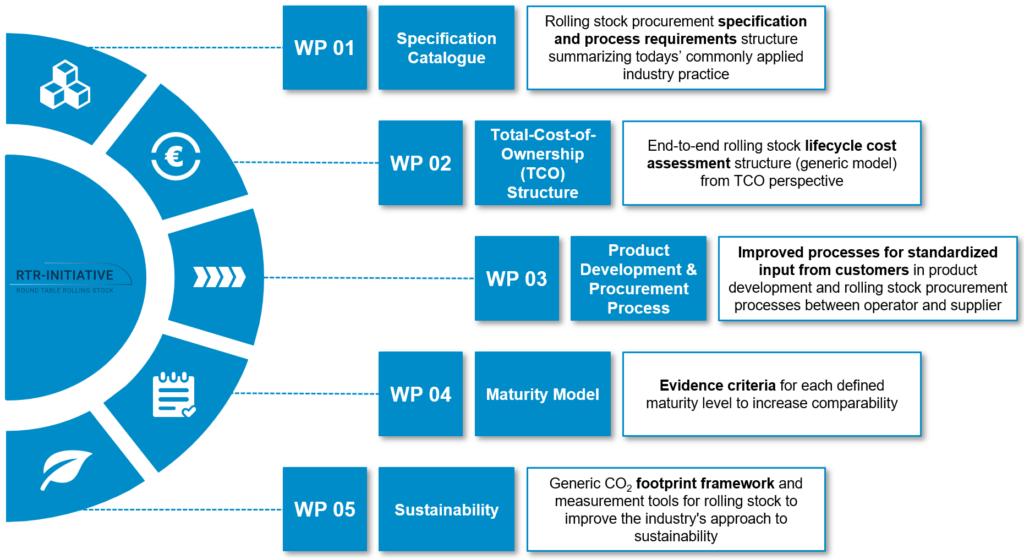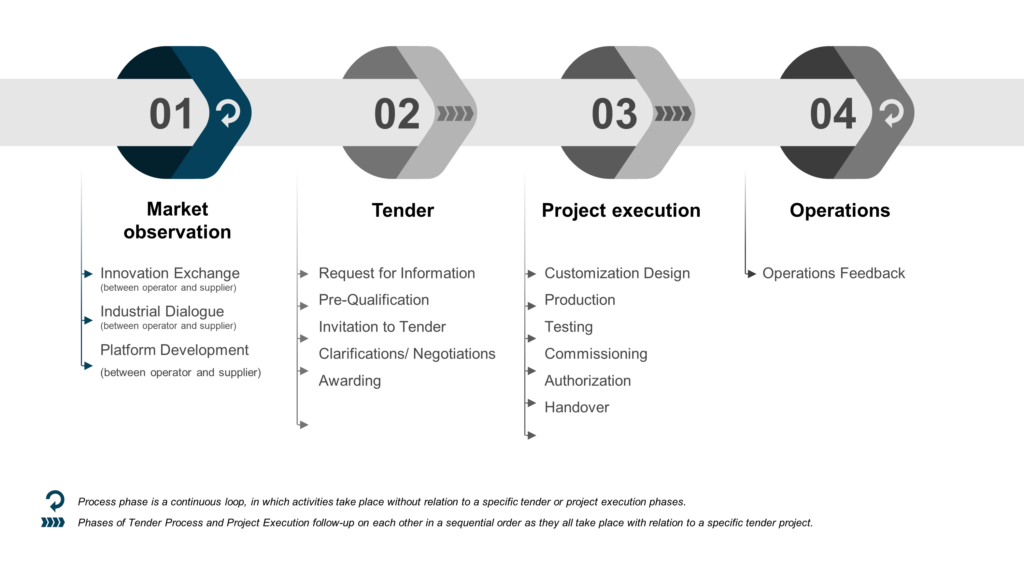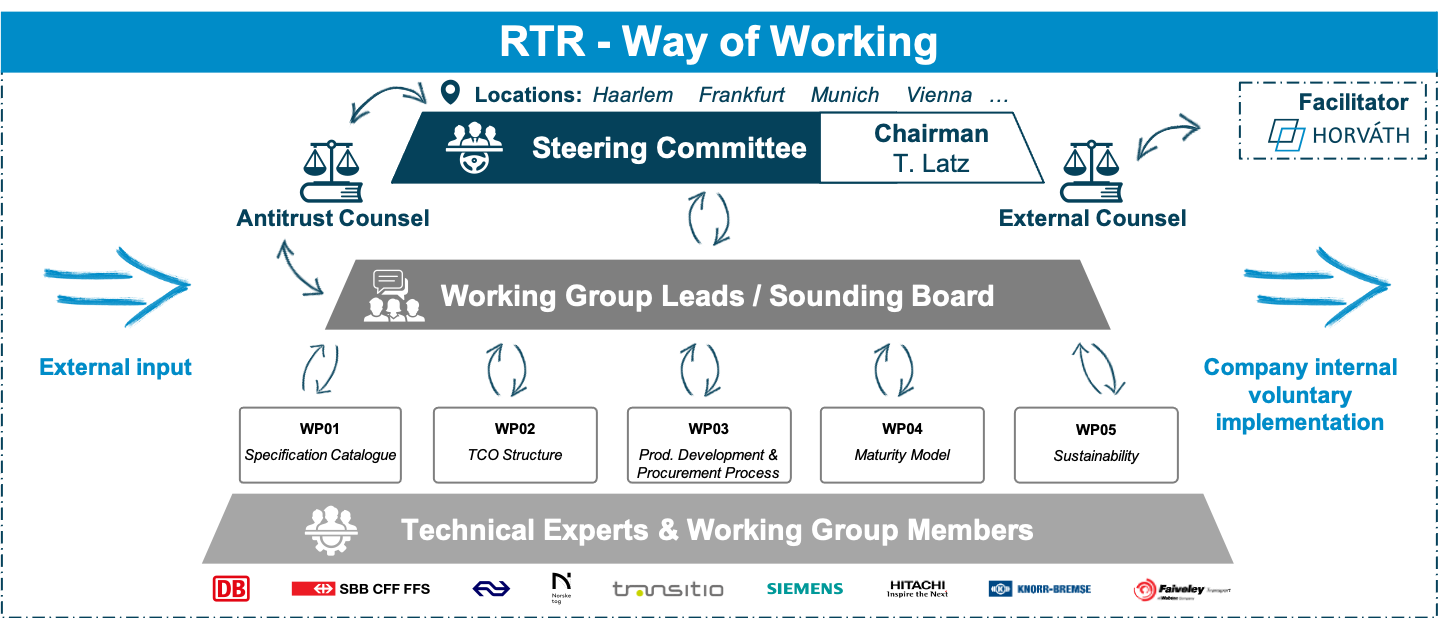
Workplan and Outlook
The Initiative is based on a long-term vision to create procurement structures that help to simplify the rolling stock product development and procurement process
Everything we currently do is related to the optimization of the procurement process of rolling stock along the following five dimensions:

All results developed by the Initiative can be allocated to the process steps within the Target Process Landscape.

We aim to increase the power of the Initiative by attracting even more operators and suppliers.
We constantly discuss and prioritize topics of interest to the sector in the years to come. Our ideas and some examples include:
- Integrating sustainability topics relating to Rolling Stock Procurement into the Initiative where legally admissible
- Further elaboration of RTR Results concerning Train Operation Modes and related State Machine incl. transitions, pre-conditions, and triggers
- Increase the ability to apply the RTR Maturity Model Framework and all accompanying documents
- Further elaboration on Basic Requirements for remaining Rolling Stock Sub-Systems
- Further enhance the Specification Catalogue and related RTR Pyramid Structure
- and more input of current and new member firms!
The RTR way of working follows a structured and collaborative approach to ensure a targeted and legally compliant development of content as shown below:

Technical Experts & Working Groups
RTR aims to develop contents that can voluntarily be applied within each member organization. Therefore, (technical) experts from different member firms form the basis of the Working Groups that are responsible to describe and summarize criteria which are already commonly applied in procurement procedures but which not yet have become a regulatory or otherwise standardized requirement. Any competitively sensitive information is excluded from any discussions or activities at RTR. Working Groups in general meet regularly in-person and virtually every 6-8 weeks to drive the Initiative forward.
Working Group Leads / Sounding Board
Every Working Group appoints two Working Group leads: One coming from an operator organization and another one coming from a supplier organization. All Working Group leads form the Sounding Board and are in touch with each other every 8-12 weeks to guarantee a harmonized elaboration of RTR contents and the exchange of best practices across all Working Groups. They also function as sparring partners within their organizations and are responsible to present (intermediate) progress of the Working Groups to the Steering Committee.
Steering Committee
All member firms appoint one person each as a representative with decision mandate. The Steering Committee is composed of all representatives with this decision-making authority as well as a chairman who is appointed annually. This year’s appointed chairman of the overall Initiative is Dr. Torsten Latz from Deutsche Bahn. The Steering Committee meets every 8-12 weeks to steer the Initiative. Thereby, being responsible for the overall workplan and roadmap, together with being responsible to finally approve contents and results worked out by the Working Groups.
Antitrust Counsel
As a measure to enhance overall competition law compliance, the continuous alignment with legal representatives / lawyers of all individual member firms takes place within the framework of the Antitrust Counsel (ATC). Thereby, following the entire process – from idea generation to form a new Working Group until finally publishing results.
External Counsel
In addition to the Antitrust Counsel, also an external competition law counsel accompanies the Initiative on all relevant topics.
Facilitator
The facilitator holds the threads of the entire Initiative together and is responsible for the preparation, execution and documentation of all workshops. In consultation with the ATC and the external competition law counsel, the Facilitator ensures that all workshops are conducted in a legally compliant manner. In addition, he advises on decisions affecting the Initiative and is therefore responsible for the preparation, execution and documentation of all Steering Committees and accompanying meetings. He is also responsible for the entire project management, including onboarding of new participants, the annual conference, the documentation of all results, and others.
